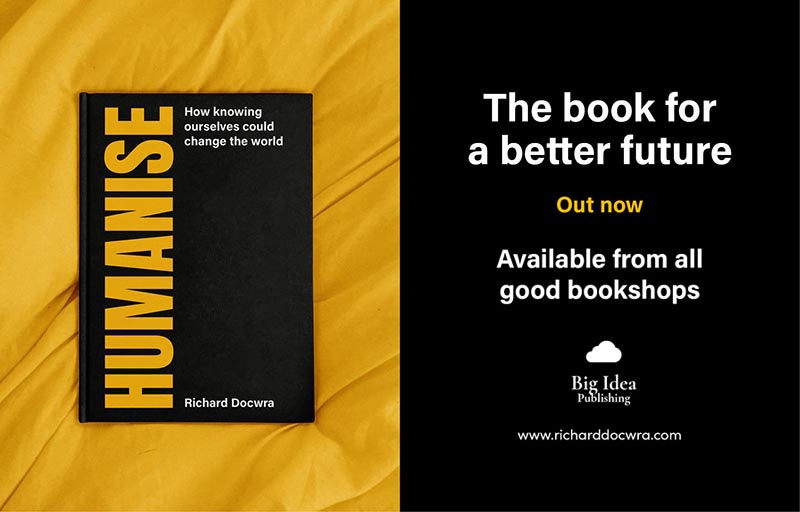Humanise in 5 points
My new book ‘Humanise’ contains a rich set of insights about human beings, the challenges we face and how we can build a better world. Below is a very short summary of 5 key points to help open it up so you can see what’s inside:
- We need to understand human beings better in order to change the world. You can’t solve human problems effectively without understanding human beings accurately first.
- Most people – including our leaders and policy makers – have an inaccurate view of how human beings think and behave. We are not the rational, self-determined individuals most of us think we are. This inaccurate view of human beings leads us to set unrealistic expectations for ourselves, build societies that actually harm us, and struggle to solve the problems facing our species.
- Human beings are LASID creatures. Human thinking and behaviour can be summed up in a 5-point model, built from the latest psychological evidence – we are limited, adapted, simplifying, influenced and deceived. We evolved to think in particular ways that can lead to biases, inaccuracies and less socially useful traits, and are highly sensitive to our situation and cues from our social environment.
- We haven’t evolved to live in the modern world. Instead, our thinking and behaviour evolved to help us survive and flourish in the hunter-gatherer societies of small tribes that our ancestors lived in for most of human history, up to only 12,000 years ago. Yet the world we live in now has completely transformed in this relatively short time, so we are struggling in the modern world, which has become hostile to human flourishing, as LASID creatures.
- We need to humanise the world. To build a world in which human beings can flourish as the LASID creatures we are, within the parameters of the one planet we have, we need to give people the conditions they need to be the rational, healthy, cooperative creatures we want and need to be. This includes giving everyone access to basic resources they need for dignified, self-determined lives, protecting rather than exploiting their cognitive vulnerabilities, dialling down their tendencies towards tribalism and activating their capacity for cooperation. We therefore need to have a radical re-imagining of the structures, ideas and institutions that surround us in our daily lives – including banning manipulative advertising, making information useful for people and building better local facilities for everyone.
Buy the book here now!
Click on this link to hear me talk about the book on my podcast series ‘Humans & Hope’
